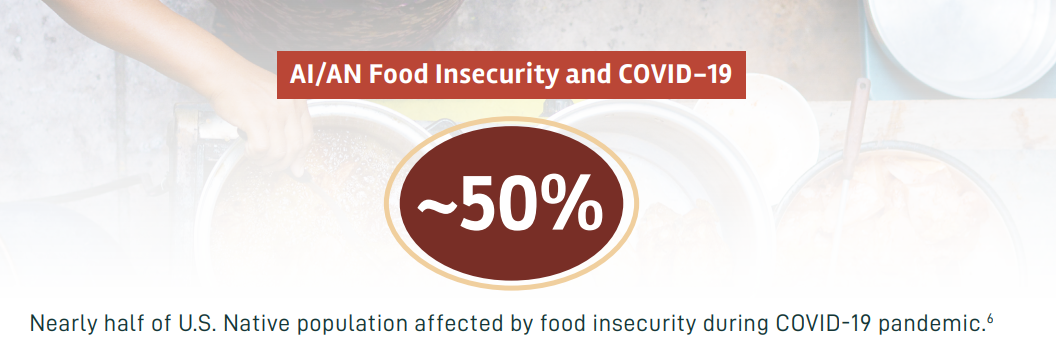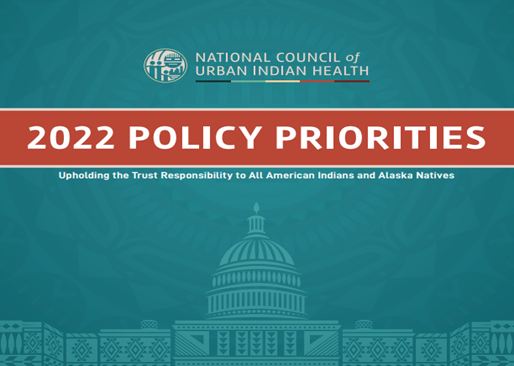On April 26, 2022, 28 Congressional leaders requested up to $949.9 million for urban Indian health in FY23 and advanced appropriations for the Indian Health Service (IHS) until such time that authorizers move IHS to mandatory spending.
Reps. Grijalva and Gallego requested up to $949.9 million for urban Indian health in FY23 and advanced appropriations for IHS until such time that authorizers move IHS to mandatory in a letter to Chairwoman Pingree and Ranking Member Joyce of the House Interior Appropriations Committee. The letter stated that “this increase in funding is necessary to address health disparities in the American Indian and Alaska Native (AI/AN) population. AI/ANs are 3.2 times more likely to be hospitalized for COVID-19 and 2.2 times more likely to die from the virus when compared with white patients.”
This letter comes as a continued effort by the National Council of Urban Indian Health (NCUIH) to address acute health disparities for AI/ANs living in urban areas, who suffer greater rates of chronic disease, infant mortality and suicide compared to all other populations that have only been exacerbated by COVID-19. Congress has acknowledged these significant health care disparities in Indian Country, but continuously underfunds IHS at around $4,000 per patient, and urban Indian organizations (UIOs) at less than $700 per patient even though AI/ANs living in urban areas comprise over two-thirds of the total AI/AN population.
The Congressional leaders also stated their support for the President’s proposal of mandatory funding. The Indian health system is currently not shielded from the negative impacts of government shutdowns, continuing resolutions, and automatic sequestration cuts. Already underfunded, these disruptions can have serious consequences to UIOs’ ability to provide critical patient services. The letter states that, “until authorizers act to move IHS to mandatory funding, we request that your subcommittee provide advance appropriations to the Indian health system to improve certainty and stability.”
This Appropriations letter sends a powerful and straightforward message to Chairwoman Pingree, Ranking Member Joyce, and members of Congress that in order to fulfill the federal government’s trust responsibility to all AI/ANs to provide safe and quality healthcare, funding for urban Indian health must be significantly increased.
NCUIH is grateful for the support of the following Representatives:
- Ruben Gallego
- Raul Grijalva
- Don Bacon
- Nanette Barragán
- Shontel Brown
- Salud Carbajal
- Sharice Davids
- Diana DeGette
- Chuy García
- Sylvia Garcia
- Steven Horsford
- Pramila Jayapal
- Ro Khanna
- Teresa Leger Fernandez
- Zoe Lofgren
- Doris Matsui
- Donald McEachin
- Jerry McNerney
- Gwen Moore
- Eleanor Norton
- Tom O’Halleran
- Raul Ruiz
- Kim Schrier
- Terri Sewell
- Adam Smith
- Melanie Stansbury
- Greg Stanton
- Rashida Tlaib
Full Letter Text
Dear Chairwoman Pingree and Ranking Member Joyce:
We write to thank you for your proven commitment to urban Indian health and Urban Indian Organizations (UIOs) and to request you continue your support by funding urban Indian health at the highest level possible up to $949.9 million and supporting advance appropriations for IHS in the FY 2023 Interior, Environment, and Related Agencies Appropriations Act.
UIOs provide health care for the over 70% of American Indians and Alaska Natives (AI/ANs) living off-reservation and are an important part of the Indian Health Service (IHS), which oversees a three-prong system for the provision of health care: the Indian Health Service, Tribal Programs, and UIOs (I/T/U). UIOs do not have access to other federal line items that IHS and Tribal facilities do, like hospitals and health clinics money, facilities funds, purchase and referred care (PRC) dollars, or IHS dental services dollars.
Our FY23 request for $949.9 million for urban Indian health reflects the recommendation made by the Tribal Budget Formulation Workgroup (TBFWG), which is comprised of sovereign Tribal leaders representing all twelve IHS service areas. For FY22, the House accepted and passed the TBFWG’s recommendation of $200.5 million for urban Indian health, reflecting the minimum investment we must make in urban Indian health. The marked increase between the FY22 and FY23 request is a result of Tribal leaders’ decision, over several decades, to provide budget recommendations based on a plan to phase in full funding for IHS and UIOs over 10-12 years to address growing health disparities that have largely been ignored. In FY23, Tribal leaders are unified in their request to fully fund UIO need at $949.9 million.
In its report, the TBFWG states that “Due to historically low funding levels for urban Indian health, UIOs are chronically underfunded. Full funding of UIOs will directly benefit urban Indians that rely on UIOs to access culturally-competent care.” If urban Indian health funding continues to be funded at its current pace, it will continue to contribute to the severe health disparities. Due to this fact, we respectfully request the highest possible funding for Urban Indian Health up to TBFWG’s recommendation of $949.9 million, and no less than the FY22 House passed level of $200.5 million.
This increase in funding is necessary to address health disparities in the American Indian and Alaska Native (AI/AN) population. AI/ANs are 3.2 times more likely to be hospitalized for COVID-19 and 2.2 times more likely to die from the virus when compared with white patients. Even before the pandemic, the population served by UIOs and IHS was particularly vulnerable. Pre-pandemic life expectancy for AI/ANs was more than four years below the national average and re-occurring health problems are more acute for AI/ANs living in urban areas, who suffer greater rates of chronic disease, infant mortality, and suicide. Yet, despite the historical acknowledgement from Congress of the significant health care disparities in Indian Country and among urban Indians, IHS is underfunded at around $4,000 per patient, with UIOs receiving less than $700 per patient. In order to fulfill the federal government’s trust responsibility to all AI/ANs to provide safe and quality healthcare, funding for urban Indian health must be significantly increased. It is also imperative that such an increase not be paid for by diminishing funding for already hard-pressed IHS and Tribal providers.
We also support the President’s proposal to make IHS funding mandatory. The Indian health system, including IHS, Tribal facilities and UIOs, is the only major federal provider of health care that is funded through annual appropriations. If IHS were to receive mandatory funding or, at the least, advance appropriations, it would not be subject to the harmful effects of government shutdowns, automatic sequestration cuts, and continuing resolutions (CRs). When IHS is funded through a CR, the IHS can only expend funds for the duration of a CR, which prohibits longer term purchases, disrupts the contracts that allow UIOs to provide health care, and quite literally puts lives at risk. Because UIOs must rely on every dollar of limited federal funding they receive to provide critical patient services, any disruption has significant and immediate consequences. Until authorizers act to move IHS to mandatory funding, we request that your subcommittee provide advance appropriations to the Indian health system to improve certainty and stability.
We thank you for your consideration of our request to provide as high a funding level as possible for urban Indian health and the 41 Title V UIOs up to $949.9 million and to support advance appropriations for IHS in the FY 2023 Interior, Environment, and Related Agencies Appropriations Act.





